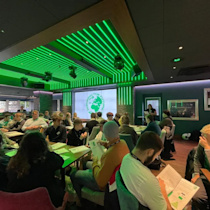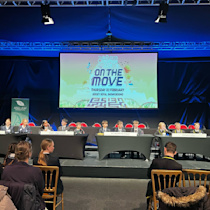
As a successful business leader, you will likely attract media attention. Whether it's a favourable profile, an interview request, or a feature story, you might be tempted to seize the opportunity to boost your visibility and credibility.
But before you agree to anything, you must be aware of the potential risks of doing anything the media asks. You don't want to end up like Luke Littler, the 16-year-old darts sensation who provoked a backlash after being photographed holding up The Sun newspaper. The tabloid is widely boycotted in his hometown of Warrington due to its controversial coverage of the Hillsborough disaster. Littler, enjoying an extraordinary run at the World Darts Championship, claimed he "didn't fully understand at the time what [he] was being asked to do" and apologised for any offence caused. But the damage was done. He faced a backlash, and his image and reputation temporarily took a hit.
A swift apology, his young age and an exciting final helped him ride out this media storm. Business leaders wouldn't receive the same allowances. Of course, not all the media is aiming to stitch you up, but here are some tips to avoid such a trap and to protect your personal and professional reputation:
Do your homework. Before you accept any media request, research the organisation and the journalist. What is their agenda, biases and reputation? Are they interviewing anyone else apart from you? Don't always trust anyone who claims to be a journalist or a media professional. Verify their credentials and check their previous work. Consider calling a PR professional who can provide strategic advice and background information on the media organisation.
Know your rights. You have the right to decline any media requests you are uncomfortable with or that do not align with your objectives. Some media organisations will allow you to review and approve any quotes, photos, or videos used in their output. Once you have completed an interview, you may not be able to withdraw your consent; however, media organisations are obliged to consider any requests if you feel you are being manipulated or exploited.
Be prepared. Before you go on the record, prepare your key messages and examples. Anticipate the possible questions and challenges you might face and rehearse your responses. Don't let yourself be distracted by irrelevant topics. Consider the location the journalist may suggest – is it sensitive or inappropriate, or is there anything distracting in the background? Is there a story behind the story?
Be authentic. Don't pretend to be someone you are not. Be wary of attempts to pressure you into doing or saying something you disagree with. Be honest, respectful, and professional. Remember, you are representing yourself, your company, your industry, and, in some cases, your community.
The media can be a powerful ally or a formidable enemy. Don't fall for the media trap and risk your reputation and credibility. Follow these tips and be smart, savvy, and strategic when dealing with the media. You will not only avoid controversy but also enhance your influence and impact. To find out more about media training for you and your team, contact former BBC journalist Mike Wilkins, who is our lead media trainer, at mike@orchardpr.com
Let's work together
Say Hi!
Get in touch to find out more about working with our award-winning team:






